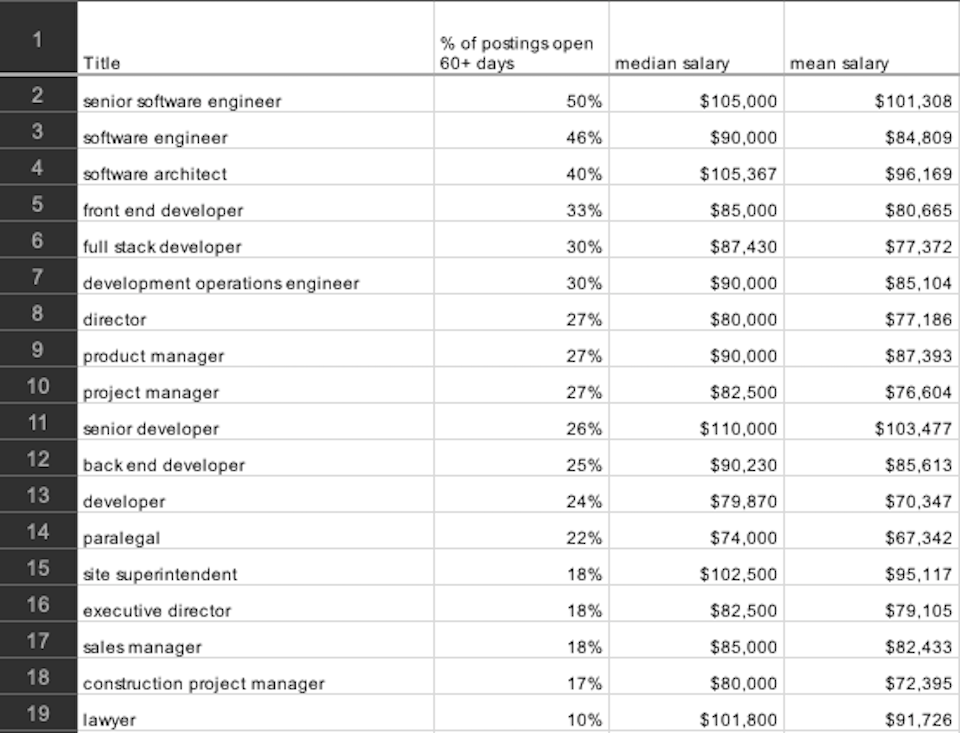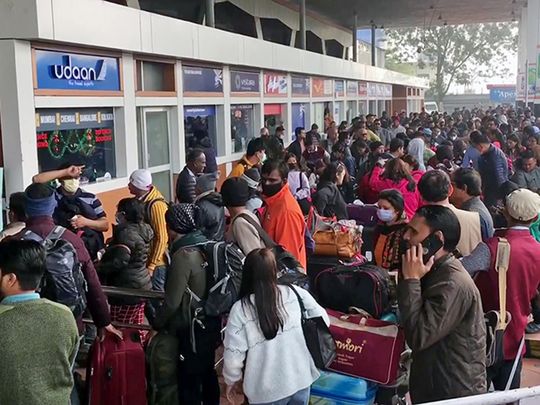
Degree Guides
100+ Degree Guides: Explore job opportunities in your field of study.
Top 15 Tourism Management Degree Jobs
By Agwaonye Samuel
Published: December 13, 2023
In today’s highly competitive job market, you might be wondering about the range of job opportunities available to you as a fresh graduate with a tourism management degree .
The reality is that many graduates often face the challenge of bridging the gap between their academic qualifications and market demands. Despite the growing significance of the tourism industry, it can be overwhelming to pick the correct path.
In this article, we’ll delve into the top jobs that cater to individuals with a tourism management degree. So, if you’re ready to embark on a journey that combines your love for travel and desire for a meaningful career, you’ve come to the right place!
Let’s take a look at our top 15 jobs:
- Air Cabin Crew Member
- Tourism Officer
- Tourist Information Center Manager
- Tour Operator
- Hotel Manager
- Resort Manager
- Event Manager
- Cafe and Restaurant Manager
- Travel Agent
- Cruise Agent
- Hotel Sales Coordinator
- Marketing Executive
- Customer Service Manager
- Holiday Representative

1. Air Cabin Crew Member
Air Cabin Crew Members, often referred to as flight attendants, play a crucial role in ensuring the safety, comfort, and satisfaction of airline passengers. They are responsible for providing exceptional in-flight service while maintaining security measures and assisting passengers with their needs.
As an Air Cabin Crew Member
Your primary responsibilities include conducting pre-flight safety briefings, serving meals and beverages, and responding to passenger requests. You play a pivotal role in enhancing the overall travel experience by creating a welcoming and comfortable atmosphere for passengers. You’ll be responsible for taking care of passengers during their flight and ensuring they have a comfortable experience.
- Travel Opportunities: Air Cabin Crew Members have the privilege of visiting various destinations, making it an ideal job for travel enthusiasts.
- Customer Service Skills: The role hones exceptional customer service skills, which can be valuable in various sectors of the tourism and hospitality industry.
- Travel Discounts: Discounts on travel-related expenses, such as hotels, car rentals, and dining. May also include discounts at retail stores, entertainment venues, and other businesses through partnerships and employee perks programs.
- Free Trips and Learning Opportunities: Ability to fly for free or at heavily discounted rates alongside their immediate family members. Opportunity to learn plenty of useful skills paid for by the airline, such as safety procedures, emergency protocols, customer service, and more.
Working Conditions
Air cabin crew members in the United States adhere to strict regulations and procedures to ensure the well-being and comfort of passengers throughout their flights. They work in a fast-paced, dynamic environment where communication and teamwork are essential. The job also requires flexibility as cabin crew members may work irregular hours, including weekends, holidays, and overnight shifts. Challenges such as jet lag, varying time zones, and extended periods away from home are common in the industry.
Further Studies
At the very minimum, you’ll need a high school diploma to be an air cabin crew in the United States.
However, you’ll also benefit from the following:
- Language Proficiency: Enhance your language skills, especially if you plan to work on international flights. Being fluent in multiple languages can be a valuable asset in a competitive industry.
- Further Safety and emergency training: Most airlines train crew members even after they get the job. These further trainings will help to keep the air cabin crew member updated with recent protocols. Air cabin crew members must complete rigorous safety and emergency training programs, which cover procedures for evacuations, firefighting, and first aid.
- Pursue Higher Education in Aviation Management: Consider pursuing higher education, such as a diploma or degree in aviation management. This can be beneficial if you aspire to move into supervisory or managerial positions within the airline industry.
- Cross-Training and Multi-Role Proficiency: Explore opportunities for cross-training in different roles within the airline industry, such as ground services or customer relations. Having a diverse skill set can make you more valuable and eligible for promotions.
- FAA certification. Cabin crew members must have a valid certification from the Federal Aviation Administration (FAA) . This training is usually provided or paid for by the airline once you pass the initial stages of the hiring process.
What Skills Make You A Strong Candidate
If you want to become an air cabin crew in the USA, you’ll need to have excellent customer service, communication, and problem-solving skills. Attention to detail is crucial since you’ll need it when carrying out safety checks, monitoring the cabin, and providing accurate information to passengers. Cabin crew members should also know how to respect and appreciate different cultures, customs, and languages, fostering inclusivity and creating a welcoming environment for everyone on the plane.
Salary Range & Job Outlook
- Average Salary ($84,637)
- Job Outlook (11%)
US air cabin crew earn an average salary of $84,637 per year. The good news is that the job outlook in this field is projected to grow by 11% over the next ten years, meaning that opportunities will be abundant for those with a tourism management degree.
2. Tourism Officer
Tourism officers are responsible for developing, promoting, and managing tourism products, services, and facilities within a given region. Tourism management degree holders are highly suitable for this job, as they understand the fundamentals of the tourism industry and know how to create strategies that will help to attract visitors.
As a Tourism Officer
Your role revolves around destination management and development. You’ll be handling the day-to-day operations of a tourist department, from planning to marketing. You’ll oversee budgets and help devise strategies to maximize visitor numbers and satisfaction. Also, you’ll inspect and monitor tourism facilities, develop promotional campaigns, and liaise with relevant stakeholders.
- Community Impact: Tourism Officers directly contribute to the economic growth and sustainability of their communities, creating jobs and business opportunities.
- Cultural Preservation: They play a pivotal role in preserving and showcasing the cultural heritage of their regions.
- Creativity: The role allows for creative strategies in marketing and event planning, making it dynamic and rewarding.
- Professional Growth: Tourism Officers have the opportunity to advance to leadership roles within the tourism and hospitality industry.
- Travel Opportunities: Travel to different destinations for inspections, conferences, trade shows, industry events, and networking is an inherent aspect of this role. Exposure to different cultures, traditions, and perspectives allows them to develop a broader global understanding.
Tourism officers in the United States work in various settings, such as tourism boards, government agencies, destination marketing organizations, or private tour companies. There’s a mix of office-based and fieldwork responsibilities. Activities include researching, developing marketing strategies, and coordinating promotional activities in the office as well as on-site visits to tourist attractions, attending trade shows and industry events, and interacting with stakeholders and community members. Occasional travel is also involved.
While a tourism management degree is invaluable for beginning a career in the industry, you may also want to consider the following:
- Master’s in Tourism Management: Pursuing a master’s degree in tourism management can provide advanced knowledge and skills for destination development and marketing.
- Language Proficiency and Cultural Awareness: Improve language proficiency, especially in languages commonly spoken in tourist destinations. Additionally, enhance your cultural awareness to effectively communicate with diverse groups of visitors.
- Internship and Cross-Training: Seek out internships or cross-training opportunities in different sectors of the tourism industry. Exposure to areas such as hotel management, event planning, or travel agencies can broaden your skill set and improve your versatility.
- Networking and Professional Memberships: Join professional organizations related to tourism and hospitality. Networking within these groups can provide valuable insights, job opportunities, and a platform to share experiences with other professionals.
- Environmental Sustainability Training: Specialized training in sustainable tourism practices can contribute to responsible destination management.
- Additional certifications. This includes language training, hospitality management, or safety and emergency procedures certifications such as Certified Tourism Professional (CTP) , and Certified Travel Associates (CTA).
Tourism Officers typically work for local governments, tourism boards, or destination management organizations. Their responsibilities include collaborating with local stakeholders, coordinating events, and implementing marketing campaigns. Strong communication skills, cultural awareness, and project management abilities are essential. The industry itself is fast-paced, so tourism officers must be adaptable. If you want to become a tourism officer, you need to know how to manage multiple tasks simultaneously and respond to changing trends and visitor demands.
- Salary Range ($59,324 to $81,685)
- Job Outlook (3.5%)
The average salary of a tourism officer in the US ranges from $59,324 to $81,685 . However, actual salaries may vary depending on the employer, location, and experience. The job outlook in this field, in general, is 3.5% for the next decade.
3. Tourist Information Center Manager
Tourist Information Center Managers oversee the operations of information centers located in popular tourist destinations. These centers serve as vital resources for travelers, providing information, maps, brochures, and assistance to enhance visitors’ experiences.
As a Tourist Information Center Manager
You’ll be managing and overseeing the daily operations of Tourist Information Centers. You may also be in charge of developing promotional activities, such as advertisements, brochures, flyers, and website content. In some cases, you may have to train new staff members, prepare budgets, create and monitor surveys, process inquiries and complaints, and set up new services or products.
- Visitor Engagement: Managers have the opportunity to engage with tourists from diverse backgrounds and provide them with valuable information.
- Local Expertise and Collaboration: The role allows you to develop deep knowledge of the destination and its attractions.You get the opportunity to collaborate with prominent travel companies and tourism operators, assisting them in promoting their services and products.
- Community Connection: Tourist Information Center Managers connect with local businesses and organizations, contributing to the tourism ecosystem.
- Management and Marketing Skills: The role enhances your leadership, team management, and budgeting skills. It also allows tourism management degree holders to actively participate in promoting and marketing their destination to the international market.
- Career Progression: With experience, managers can advance to leadership roles in tourism and hospitality.
Tourist Information Center (TIC) Managers in the United States perform several roles, including administrative duties, visitor assistance, and team management. In addition to the daily operations of the information center you’re in charge of, you’ll also have to work together with local and international tourism organizations and agencies to promote the destination and provide accurate and up-to-date information to visitors.
A high school diploma or GED is usually all you need to be a Tourist Information Center Manager in the United States, but only after years of experience. If you want to speed up the process, you’ll need these:
- Hospitality Management Degree: Pursuing a degree in hospitality management can provide advanced knowledge in managing tourist information centers and destination marketing.
- Professional Development Workshops: Attend workshops and seminars focused on tourism trends, customer service, and management strategies. Continuous professional development keeps you informed about industry best practices.
- Customer Experience Enhancement Programs: Focus on customer experience enhancement programs. Implementing innovative ways to improve the overall experience for tourists can contribute to the success of the tourist information center.
- Customer Relationship Management (CRM) : CRM training can be beneficial for managing visitor relationships and improving the quality of services.
- Cross-Departmental Collaboration: Collaborate with other departments and agencies involved in tourism, such as local government bodies and cultural organizations. Building partnerships can enhance the influence and scope of the tourist information center.
Tourist Information Center Managers are typically used to a customer-oriented approach and have excellent customer service skills and communication abilities. You should also be knowledgeable about the destination, its attractions, and activities, as well as local laws, customs, and guidelines. In addition, you must be comfortable with multitasking and have the ability to think quickly on your feet.
- Average Salary ($89,842)
- Job Outlook (23.1%)
The average salary of a tourist information center manager in the United States is around $89,842 per year. Job growth in this field is expected to grow by 23.1% over the next decade.
4. Tour Operator
Tour operators work with travel agents and tour companies to organize trips, tours, and activities for tourists. It’s a highly rewarding job for those with a tourism management degree, as you’ll be able to utilize your industry knowledge while providing excellent service to tourists who don’t have the time or resources to plan their own trips.
As a Tour Operator
Your role revolves around planning and creating tour packages that suit the various needs of your clients. This includes researching and selecting destinations, compiling itineraries, arranging transportation and accommodation, creating detailed budgets, efficiently handling customer inquiries and complaints, and ensuring a safe and enjoyable experience for all participants.
- Competitive Compensation: Access to special rates, discounts, promos, bonuses, and other perks that regular tourists or travelers don’t have.
- Job Versatility: Opportunity to work with clients from a diverse range of backgrounds and cultures. The role offers versatility, from organizing cultural tours to adventure travel packages.
- Make an Impact: Contribution to society by offering sustainable tour packages while still providing a memorable and enjoyable trip.
- Build and Develop your Skills: Develop your skills in customer service, budgeting, event planning, and contingency planning. The role allows for creativity in designing unique and personalized travel experiences.
Tour operators in the US typically work inside an office, collaborating with suppliers, hotels, transportation providers, and local partners to create seamless travel experiences for their clients. They often have a flexible schedule, including occasional travel to inspect destinations and negotiate contracts. The job may require evening or weekend work sometimes, and they should be ready to receive messages or calls in case of emergencies.
You only need a high school diploma or GED in order to become a tour operator in the US. It’s actually more of a business than a profession, so experience in the tourism industry and strong customer service skills are more important than a college degree.
Certifications that could enhance job prospects:
- Advanced Degree in Tourism Management: Consider pursuing an advanced degree, such as a Master’s in Tourism Management. This level of education can provide a deeper understanding of industry trends, management strategies, and global tourism dynamics.
- Marketing and Branding Strategies: Enhance your marketing skills and develop strong branding strategies. Effective marketing can significantly impact the visibility and success of your tour operation.
- Certified Tour Professional (CTP) : Offered by the National Tour Association (NTA), the CTP certification covers various aspects of tour planning, marketing, and operations.
- Certified Travel Associate (CTA): The Travel Institute offers the CTA certification, which covers essential knowledge and skills for travel professionals, including Tour Operators.
- Diversify Product Knowledge: Expand your knowledge of destinations, attractions, and travel products. Specialize in niche markets or unique experiences to offer diverse and appealing travel packages.
- Negotiation and Communication Training: Further training in negotiation and communication skills can aid in securing favorable deals with suppliers and ensuring client satisfaction.
Successful Tour Operators possess skills in itinerary planning, negotiation, cultural sensitivity, destination knowledge, client relationship management, and adaptability. They excel in creating memorable travel experiences and ensuring clients’ needs are met. Tour operators should be detail-oriented, skilled in logistics, and possess excellent communication and problem-solving abilities to ensure smooth operations and client satisfaction.
- Average Salary ($59,911)
- Job Outlook (4%)
The average salary for tour operators in the United States is around $59,911 annually, but it can vary wildly depending on the area. The job outlook in this field in the US is projected to grow by 4% over the next decade.
5. Tour Guide
Tour guides are like adventure conductors, leading curious explorers on exhilarating journeys through captivating destinations. They bring destinations to life, weaving intriguing tales of ancient civilizations and long-forgotten legends. With their contagious enthusiasm, they transform tourists into travelers, igniting a sense of wonder and awe and ensuring an authentic and unforgettable experience.
As a Tour Guide
You’ll be conducting sightseeing tours and providing commentary about the local area. You’ll also be helping travelers navigate their way around, providing directions and advice to ensure they get the most out of their trip. You should also be well-versed in local laws, customs, and native language.
- Positive Impact: Use your customer service expertise to create exceptional and personalized experiences for visitors, enhancing their satisfaction and enjoyment.
- Deepens Knowledge: The role deepens your understanding of local cultures, histories, and landmarks. You also have the chance to get familiar with different destinations, which can be intellectually stimulating and enriching.
- Job Flexibility: Enjoy flexible working hours, which can benefit those seeking a work-life balance or pursuing other interests.
- Networking: Offers networking opportunities and the chance to develop professional connections within the tourism sector.
Tour guides in the United States are primed for a vibrant and engaging experience. Whether in cities, natural landscapes, or historical sites, they can enjoy diverse work environments and explore different settings. Tour guides often work in outdoor settings, historical sites, museums, or popular tourist attractions. The job requires flexibility, as tour guides may work irregular hours, including weekends, holidays, and evenings, depending on the tour schedules and client demands.
You don’t need a college diploma to become a tour guide in the United States, just a high school diploma or a GED.
Still, here are some courses or certifications you may want to consider taking:
- Language Proficiency: Enhance your language skills, especially if you work in areas with diverse international visitors. Proficiency in multiple languages can significantly broaden your clientele and improve guest satisfaction.
- Destination Knowledge Enhancement: Continuously deepen your knowledge about the destinations you guide tours in. Stay updated on historical, cultural, and environmental aspects to provide richer and more insightful experiences for your guests.
- Cultural Sensitivity Workshops: Attend workshops or courses on cultural sensitivity and inclusivity. This is especially important if you guide tours in culturally diverse regions to ensure respectful interactions with guests from various backgrounds.
- Advanced Tour Planning: Learn advanced tour planning techniques, including logistics, risk management, and contingency planning. This skill set is valuable if you want to lead more complex or specialized tours.
- Professional Tour Guide Certification: Offered by various organizations and associations, this certification covers tour guiding standards, ethics, and knowledge.
- National Tour Association (NTA) Certification: NTA offers certifications for tour professionals, including Certified Tour Professional (CTP) and Certified Tour Director (CTD) . This can be an added value to the role.
Tour guides must understand the destination from the perspective of an educated tourist. With your excellent communication and up-to-date knowledge of travel trends, you can provide relevant and engaging commentary during tours, ensuring visitors receive valuable information that best serves them. You should also have a genuine passion for the local area, its history, and its culture to create an immersive, informative, and enjoyable experience for your visitors.
- Average Salary ($28,492 and $39,831)
- Job Outlook (10.5%)
On average, tour guides salaries range between $28,492 and $39,831 per year. The job outlook for Tour Guides is positive and expected to grow by 10.5% in a few years, with continued demand for professionals who can provide engaging and informative tours to travelers.
Related Article
- How to Become a Tour Guide
6. Hotel Manager
Hotel Managers are seasoned professionals responsible for overseeing the operations of hotels and ensuring guests have a comfortable and memorable stay. They manage staff, maintain facilities, and work to meet the diverse needs of guests.
As a Hotel Manager
You’ll oversee the day-to-day operations of a hotel, ensuring that all the facilities are in tip-top shape. You’ll also be responsible for maintaining contact with clients, handling customer service inquiries, setting room rates and policies, recruiting and supervising staff members, and ensuring the safety and security of the premises.
- Hospitality Leadership: Hotel Managers have the opportunity to lead teams and create a welcoming atmosphere for guests.
- Customer Interaction: The role involves direct interaction with guests, ensuring their satisfaction and addressing their needs.
- Business Acumen: Managers develop business skills, including financial management and marketing.
- Diverse Career Opportunities: The hospitality industry offers diverse opportunities for growth and specialization.
- Global Experience: Managing hotels in different locations allows for diverse cultural experiences.
- High Earning Potential: Hotel Managers, especially those overseeing 5-star hotels, have the possibility of earning a high salary.
Hotel managers are typically based in an on-site office but are frequently required to move around the property to supervise staff and even interact with guests. Managers need to be good at multitasking and teamwork due to their various responsibilities, which include staffing, training, budgeting, inventory management, and resolving customer issues. The role often involves long and irregular hours, including evenings, weekends, and holidays, as hotels operate 24/7. It’s not for the faint of heart, but it can be a rewarding career path for those passionate about hospitality.
It’s possible to become a hotel manager with only a high school diploma or GED, but this is usually only after several years of working experience.
If you want to reach this position faster, here’s what you need:
- Master’s in Hospitality Management: Pursue a Master’s degree in Hospitality Management to gain advanced knowledge in areas such as strategic management, marketing, and leadership within the hospitality industry.
- Cross-Functional Experience: Seek opportunities to gain experience in different departments within the hotel, including operations, sales, and marketing. This cross-functional experience enhances your overall understanding of hotel management.
- International Experience: Consider working in different locations or countries to gain international experience. Exposure to diverse cultures and markets can be beneficial for managerial roles in larger hotel chains or international hospitality organizations.
- Industry Certifications: Certain certifications, such as Certified Hospitality Supervisor (CHS) and Certified Hotel Administrator (CHA), can also boost your resume.
Successful Hotel Managers possess strong leadership, communication, problem-solving, customer service, and financial management skills. They excel in managing staff and resources to provide guests with exceptional experiences. To excel in this role they must possess the knowledge and skills necessary to manage customer relationships, understand hospitality regulations, oversee financial reporting, and maintain lodging standards.
- Average Salary ($116,430)
- Job Outlook (6%)
The salary for Hotel Managers can vary based on factors such as the size and location of the hotel, experience, and the scope of responsibilities. Typically, they earn an average salary of $116,430 per year. The job outlook for Hotel Managers is promising and set to grow 6% from 2023 to 2033.
7. Resort Manager
Resort Managers are seasoned professionals responsible for overseeing the day-to-day operations of resorts, ensuring guests have a memorable and enjoyable stay. They manage staff, maintain facilities, and work to meet the diverse needs of guests seeking relaxation and leisure.
As a Resort Manager
Your role involves overseeing all aspects of resort operations, from guest services and housekeeping to recreational activities and dining options. You are responsible for creating a welcoming and enjoyable environment for guests, managing staff, and ensuring the profitability and success of the resort.
- Luxurious Getaways: As a Resort Manager, you’ll orchestrate and partake in luxurious getaways, offering guests an opulent escape from their daily lives.
- Personalized Guest Experiences: You’ll have the opportunity to create personalized and unforgettable guest experiences, ensuring their comfort and satisfaction.
- Financial Success: Resort Managers are well-compensated, with the potential for substantial income and bonuses based on revenue maximization.
- Creative Leadership: This role provides the creative freedom to shape unique and innovative guest experiences and amenities.
- Cultural Enrichment: Managing resorts in diverse locations offers exposure to different cultures and traditions, broadening your global perspective.
Resort managers work in picturesque and often scenic locations, catering to leisure travelers seeking a memorable vacation experience. Resort managers typically have their own office on-site, but part of the job is supervising different areas of the resort and interacting with guests. The role often involves long and irregular hours, including evenings, weekends, and holidays, as resorts operate around the clock to provide continuous service.
You’ll need a bachelor’s degree at minimum to become a manager for a resort chain in the United States. Some may accept an associate’s degree.
If you want to boost your chances, consider the following:
- Master’s in Hospitality Management: Pursuing an advanced degree in hospitality management can provide in-depth knowledge of the industry, leadership, and business strategies.
- Internship and On-the-Job Training: Seek out internships or on-the-job training opportunities in different areas of resort management. Gaining hands-on experience in departments such as front office, housekeeping, and food and beverage can broaden your skill set.
- Language Proficiency: Depending on the location of the resort, language proficiency can be a valuable asset. Learning additional languages, especially those commonly spoken by guests, can improve communication and enhance the overall guest experience.
- Customer Service and Guest Experience Training: Ensuring that your team delivers exceptional guest experiences is essential. Consider training programs focused on improving customer service and guest satisfaction.
- Certifications: Industry-recognized certifications, such as Certified Hotel Administrator (CHA) or Certified Hospitality Supervisor (CHS) , can demonstrate your expertise and commitment to the field.
Resort managers need to possess strong leadership skills to handle everything that goes with their role. You also need to be the ultimate problem-solving guru, from managing maintenance requests to handling guest complaints with grace and charm. You should also be able to quickly assess various situations and make sound decisions in a timely manner.
- Average Salary ($67,462)
On average, resort manager salary is $67,462 annually. The job outlook for Resort Managers is positive with a growth rate of 4% , with continued demand for professionals who can create and manage luxurious and memorable resort experiences for guests.
8. Event Manager
Event managers are the perfect party planners — the maestros orchestrating a symphony of logistics, creativity, and meticulous planning to bring dreams to life. From dazzling corporate galas to whimsical weddings and epic music festivals, event managers create immersive worlds where the ordinary fades away, and the extraordinary takes center stage.
As an Event Manager
You’ll be conceptualizing, planning, executing, and evaluating a wide range of events, whether it’s a corporate conference, a glamorous gala, a music festival, or a wedding extravaganza. You’ll have to work closely with clients to understand their vision and objectives, manage budgets, scout venues, coordinate with vendors, oversee event setup and production, and ensure that every detail is flawlessly executed.
- Creativity Unleashed: Event Managers have the creative freedom to design and execute unique and memorable events, turning visions into reality.
- Diverse Events: You’ll have the opportunity to work on a wide variety of events, from weddings and corporate conferences to music festivals and cultural celebrations.
- Client Satisfaction: The role is highly rewarding when clients express their satisfaction and appreciation for your efforts in creating successful events.
- Networking: Event Managers build extensive networks within the event industry, collaborating with vendors, clients, and fellow professionals.
- Career Growth: The skills gained as an Event Manager can lead to diverse career opportunities in event planning and management.
- Discounts: Access to discounts, freebies, promos, and VIP access to event-related products and services.
Event managers in the United States often work in event planning agencies, hotels, convention centers, or as independent professionals. They may spend significant time in an office setting, coordinating logistics, managing budgets, and communicating with clients and vendors. However, they also frequently travel to event venues, conduct site visits, and oversee on-site event operations.
The events industry is quite competitive as a whole, so you’ll need to meet more than the bare minimum in order to even get a foot in.
Consider the following:
- Masters in Business Administration (MBA) with Event Management Focus: Consider an MBA with a focus on event management or hospitality. This advanced degree equips you with strategic business skills, enhancing your ability to manage large-scale events and oversee organizational aspects.
- Certifications. Industry certifications such as Certified Meeting Professional (CMP) or Certified Special Event Professional (CSEP) can benefit your resume.
- Networking and Professional Memberships: Actively participate in industry events and join professional organizations like the International Live Events Association (ILEA) or Meeting Professionals International (MPI). Networking can lead to valuable connections and opportunities.
- Advanced Leadership Training: Enroll in leadership development programs to enhance your managerial skills. As an Event Manager, strong leadership qualities are essential for overseeing teams and ensuring successful event execution.
- Safety and Security Training: Especially relevant for large-scale events, safety and security training ensures attendee well-being.
If you want to make it as an event manager, you need to be able to thrive in a high-pressure environment where multitasking is the norm. You should also be able to solve problems on the fly, have excellent communication skills, and have strong organizational abilities. You should already possess the necessary knowledge in areas such as customer service, hospitality regulations, administrative duties, and financial reporting.
- Average Salary ($81,001)
- Job Outlook (8%)
The average salary of an event manager in the United States is $81,001 . Job prospects in the event industry are expected to grow 8% from 203 to 2031.
9. Cafe and Restaurant Manager
Cafe and restaurant managers lead a team of passionate chefs, talented bartenders , and charismatic servers, infusing their establishment with a touch of magic that keeps guests coming back for seconds. In this culinary symphony, cafe and restaurant managers blend their love for food, their dedication to customer satisfaction, and their unwavering commitment to creating gastronomic experiences that make hearts and taste buds sing.
As a Cafe and Restaurant Manager
You’ll be in charge of the overall operations inside the cafe or restaurant, including managing staff, including hiring, training, and scheduling. You also need to ensure that front-of-house and back-of-house operations are run smoothly, overseeing seating arrangements, taking reservations, and coordinating with the kitchen to maintain high-quality food and beverage service.
- Culinary Leadership: Cafe and Restaurant Managers have the opportunity to lead culinary teams, delivering delightful dining experiences to guests.
- Guest Satisfaction: The role is rewarding when diners express their satisfaction and appreciation for the restaurant’s service and cuisine.
- Creativity in Menu Design: Managers can exercise their creativity in menu design, tailoring offerings to satisfy a diverse range of tastes.
- Networking: Cafe and Restaurant Managers build extensive networks within the food and beverage industry, collaborating with chefs, suppliers, and fellow professionals.
- Career Growth: The skills gained as a manager can lead to diverse career opportunities in restaurant management and culinary arts.
Cafe and restaurant managers can work in various settings, from fast-food chains and casual eateries to fine-dining restaurants and five-star hotels. Although they typically have their own office space for administrative tasks, they may need to spend a significant portion of their time on the restaurant floor, overseeing the dining area, interacting with customers, and supervising staff. Teamwork with chefs, kitchen staff, waitstaff, and suppliers is necessary to ensure smooth operations and high-quality food and beverages.
To become a cafe and restaurant manager in the United States, you’ll need a minimum of a high school diploma or GED.
The following may also help:
- Master’s in Business Administration (MBA): Pursuing an MBA with a focus on hospitality management or business administration can provide a deeper understanding of strategic management, finance, and marketing, which are crucial for senior management roles.
- Certified Restaurant Manager: Earning a certification as a Certified Restaurant Manager (CRM) can enhance your credentials and knowledge in restaurant management.
- On-the-Job Training and Experience: Gain additional hands-on experience by working in various roles within the food and beverage industry. Exposure to different aspects of restaurant operations can be valuable for managerial roles.
- Customer Relationship Management Training: Focus on improving customer relationship management skills. This includes understanding customer preferences, handling customer feedback, and implementing strategies to enhance customer satisfaction.
- Leadership and Team Management Workshops: Developing your leadership and team management skills is crucial for overseeing restaurant staff.
To thrive as a manager, you need to have strong problem-solving and people skills, organizational aptitude, and the ability to multitask. Your passion for hospitality and dedication to exceptional customer service will drive your efforts to create an exceptional dining experience that leaves guests eager to return. Successful Cafe and Restaurant Managers possess strong leadership, communication, financial management, and culinary skills. They excel in managing staff, providing exceptional dining experiences, and ensuring guest satisfaction.
- Average Salary ($79,500)
- Job Outlook (10%)
Cafe and restaurant managers in the United States can expect to earn an average annual salary of $79,500 . The job outlook for restaurant managers is expected to grow by 10% for ten years.
- Hiring a Restaurant Manager: Job Description Template
10. Travel Agent
Travel agents use their insider connections to showcase personalized packages that highlight the best a destination has to offer. It’s a suitable role for tourism degree holders, with their deep understanding and knowledge of customer needs, destination marketing, and industry trends.
As a Travel Agent
You’ll be responsible for providing your clients with the most suitable travel packages within their budget. You’ll be in charge of planning and booking their travel arrangements. From initial consultations to booking flights, accommodations, and activities, you’ll need to ensure that every aspect of their journey is seamless and tailored to their desires.
- Client Satisfaction: Travel Agents find fulfillment in creating unforgettable travel experiences that leave clients satisfied and appreciative.
- Diverse Destinations: The role offers the opportunity to explore and research diverse destinations, broadening your knowledge of the world.
- Personalized Travel: Travel Agents have the creative freedom to customize trips to match the specific interests and desires of each traveler.
- Networking: Building a network within the travel industry can lead to partnerships, collaborations, and exclusive travel opportunities.
- Career Growth: The skills gained as a Travel Agent can lead to diverse career opportunities in the travel and tourism sector.
Being a travel agent in the US means experiencing a blend of office-based tasks and customer interaction. Travel agents work in travel agencies, online booking platforms, or as independent professionals. While they primarily work in an office environment, utilizing technology and travel booking systems to research and organize itineraries for their clients, they may occasionally have to travel to meet suppliers, attend workshops or seminars, and inspect destinations.
You only need a high school diploma or GED to become a travel agent in the United States.
Here are a few other things that can help further your career:
- Destination Specialist Training: Undertake destination-specific training to become a specialist in certain regions or types of travel (e.g., luxury travel, adventure travel). This specialization can make you a go-to expert for clients seeking unique travel experiences.
- Certifications: Professional certifications, such as Certified Travel Associate (CTA) or Certified Travel Counsellor (CTC), can also help improve your chances.
- Cruise Line, Hotel, and Tour Operator Training: Participate in training programs offered by cruise lines, hotels, and tour operators. This specialized knowledge allows you to offer tailored recommendations and provide expert advice to clients.
- Language Proficiency: If your clientele includes international travelers, consider learning additional languages. Proficiency in multiple languages can broaden your customer base and provide a competitive edge.
- Technology and Software Training: Stay updated on the latest travel technology and booking systems. Familiarity with advanced reservation platforms and travel management software enhances efficiency and customer service.
Travel agents should have unparalleled customer service skills and the ability to think on their feet. They need to be flexible and willing to cater to the needs of their clients, as no two customers are the same. You should excel in understanding client preferences, arranging seamless travel itineraries, and ensuring client satisfaction.
- Average Salary ($61,300)
- Job Outlook (3%)
On average, travel agents earn a salary of $61,300 annually. The job outlook for Travel Agents is projected to grow 3% , with a continued demand for professionals who can provide expert travel planning services.
- How to Become a Travel Agent
11. Cruise Agent
A cruise agent is a knowledgeable and skilled professional who expertly navigates the vast seas of the travel industry. They’re your trusted compass, helping you embark on unforgettable voyages with precision and care. From selecting the perfect ship and crafting personalized itineraries to securing cabins and coordinating intricate logistics, these seasoned adventurers take the helm to ensure smooth sailing from start to finish.
As a Cruise Agent
You’ll be in charge of providing personalized cruise packages to clients with their budgets, needs, and preferences in mind. You’ll use your impeccable understanding of different cruise lines, vessels, destinations, and amenities to recommend the cruises that suit your clients best.
- Cruise Expertise: The role allows you to develop specialized knowledge of cruise lines, destinations, and packages, making you a trusted advisor.
- Travel Exploration: Cruise Agents have the opportunity to explore various cruise destinations, deepening their understanding of global travel.
- Career Growth: The skills gained as a Cruise Agent can lead to diverse career opportunities in the travel and cruise sector.
- Make Memories: Ability to create personalized and memorable cruise experiences for clients, catering to their preferences and interests.
- Continuous Learning : Continuous learning about the cruise industry, including new ships, onboard features, and travel trends.
The working conditions of cruise agents in the United States are fairly laid back. They usually operate in office-based settings, using computer systems and booking platforms to research, plan, and customize cruise itineraries for their clients. They also communicate with customers via phone, email, or in person to gain a firm grasp of their preferences, budget, and desired destinations. The job usually entails working irregular hours to accommodate client needs.
To become a cruise agent in the United States, you’ll need at least a high school diploma or GED.
The following should also help:
- Associate’s or bachelor’s degree: A degree in tourism management or a related field can equip you with the industry knowledge and business skills necessary to excel as a cruise agent.
- Cruise Line Specialist Certifications : Earning specialist certifications from various cruise lines can enhance your expertise and credibility.
- Cruise Line Partnerships: Develop partnerships with specific cruise lines. Building strong relationships with cruise line representatives can provide you with insider information, access to exclusive promotions, and opportunities to enhance your product knowledge.
- Destination Expertise: Focus on becoming an expert in specific cruise destinations. In-depth knowledge of popular cruise routes, ports of call, and local attractions can set you apart and allow you to provide more personalized recommendations to clients.
- Customer Relationship Management (CRM) Skills: Sharpen your CRM skills to effectively manage client relationships. Being able to understand and anticipate client preferences can lead to repeat business and positive word-of-mouth referrals.
Cruise agents need to be able to provide expert advice on cruise options, cabin types, onboard amenities, and shore excursions, which means they need to be knowledgeable on these topics. They should also have strong communication and customer service skills to build rapport with clients and establish trust.
- Average Salary ($48,097)
- Job Outlook (20%)
The average annual salary for cruise agents in the United States is $48,097 . The job outlook growth for this profession is expected to grow by 20% in the coming years, making this one quite promising.
12. Hotel Sales Coordinator
A hotel sales coordinator plays a pivotal role in orchestrating successful hotel events and group bookings. Think of them as the mastermind behind the scenes, flawlessly coordinating all the moving parts to create memorable experiences for hotel guests. From meticulously managing room blocks to liaising with various departments to ensuring seamless communication, they’re the glue that holds it all together.
As a Hotel Sales Coordinator
You’ll be responsible for managing the sales process and coordinating events or group bookings in a hotel. This includes liaising with different departments to ensure all the necessary arrangements are made in accordance with customer expectations. You’ll also be in charge of helping the hotel team to bring in business by meeting with prospective clients, negotiating your contracts, and maintaining customer relationships.
- Exciting Compensation and Benefits: Get access to various hotel amenities and perks, such as discounted or complimentary accommodations and dining.
- Client Satisfaction: Cruise Agents find fulfillment in creating unforgettable cruise experiences that leave clients satisfied and eager to set sail again.
- Contribute to Success: Satisfaction of contributing to the success of events and ensuring exceptional experiences for guests.
Hotel sales coordinators typically work in an office setting, where they need to use various software and tools, coordinate with potential clients, and review contracts. They also need to be on-site during events or group bookings to ensure that all arrangements are running smoothly. The job may involve occasional travel to attend trade shows and industry events or visit clients and suppliers in person.
You don’t need a college diploma to become a hotel sales coordinator.
Still, here are some qualifications that can give you an edge in the industry:
- Associate’s or bachelor’s degree: A degree in tourism management, business administration, hotel management, or similar fields can give you a boost.
- Certifications in Hospitality Sales: Certifications such as Certified Meeting Professional (CMP) or Certified Hospitality Sales Professional (CHSP) can also help you stand out and may be required for some positions.
- Networking within the Hospitality Industry: Actively participate in industry events, trade shows, and networking functions. Building connections with professionals in the hospitality sector can provide insights, opportunities for collaboration, and potential career advancements.
- Advanced Sales and Customer Service Training: Improving your sales and customer service skills can help you better cater to clients and secure bookings.
- Language Proficiency and Cultural Awareness: Enhance your language skills, especially if working in an international or multicultural environment. Being fluent in additional languages and culturally aware can be a valuable asset in hotel sales, particularly when dealing with diverse clientele.
Hotel sales coordinators work closely with the sales and marketing teams of hotels to assist in generating business and coordinating sales efforts, which means they need to be knowledgeable of all the amenities, services, and packages offered by their employer. They also need a keen eye for detail, a knack for building strong relationships, and excellent communication skills.
- Average Salary ($44,800)
- Job Outlook (5%)
A hotel sales coordinator’s average annual salary is $44,800 in the US. The job outlook for this profession is forecasted to grow by 5% through the next decade.
13. Marketing Executive
Marketing Executives are professionals responsible for developing and implementing marketing strategies to promote products or services. They play a key role in driving brand awareness, customer engagement, and sales growth through various marketing channels and campaigns.
As a Marketing Executive
You’ll be responsible for planning, implementing, and managing various marketing initiatives to promote products, services, or brands. You may also be tasked with crafting engaging content and handling social media accounts, as well as analyzing data and identifying growth opportunities.
- Guest Engagement: Hotel Sales Coordinators enjoy the opportunity to engage with clients, ensuring their needs and preferences are met.
- Sales Expertise: The role provides a chance to develop expertise in sales strategies and techniques, which can be applied in various industries.
- Networking: Building connections within the hotel and event planning industry can lead to valuable partnerships and career opportunities.
- Career Growth: The skills gained as a Hotel Sales Coordinator can lead to diverse career opportunities in sales, marketing, and the broader hospitality sector.
Marketing executives can choose to work in an office or engage in remote work . They may need to travel to attend meetings, events, or conferences relevant to the industry they’re in. They frequently collaborate with cross-functional teams, including creative professionals, sales personnel, and external agencies, to create and execute marketing campaigns. Marketing executives also use digital platforms, social media, traditional advertising channels, and market research to reach target audiences and drive brand awareness.
A college diploma is the minimum needed to become a marketing executive in the United States.
- Specialized Master’s Degrees: Consider pursuing a master’s degree in marketing , business administration with a marketing focus, or a related field. Specialized programs deepen your understanding of advanced marketing strategies and management.
- Certifications. Possible certifications you can get include Certified Digital Marketing Professional (CDMP) or Certified Inbound Marketer (CIMM) .
- Advanced Analytics and Data Science Training: Invest in training related to marketing analytics and data science. Proficiency in analyzing data trends and customer behavior is increasingly vital for strategic decision-making in marketing.
- Cross-Functional Experience: Seek opportunities for cross-functional experience within your organization. Exposure to different departments like sales, product development, or customer service can provide a more holistic understanding of business operations.
- Customer Relationship Management (CRM) Tools: Training in CRM tools can help you manage and analyze guest data for more targeted sales efforts.
- Networking and Industry Involvement: Actively participate in industry events, conferences, and networking groups. Building a strong professional network can open doors to new opportunities and provide insights into emerging trends.
Marketing executives have strong communication, analytical, and creative skills, which they’ll use to identify market trends, analyze data, and develop effective marketing initiatives. They’re great problem solvers, able to think outside the box and come up with solutions that meet customer needs. They must also have a good understanding of various marketing tools, technologies, and strategies, as well as excellent organizational skills to manage their workload.
- Average Salary ($66,772)
- Job Outlook (9.9%)
Marketing executives earn an average of $66,772 per year. The job outlook for this industry is expected to grow by 9.9% in the coming years.
14. Customer Service Manager
A customer service manager is a skilled professional responsible for making sure every customer leaves with a smile. From hiring and training staff to developing and implementing customer service policies and procedures, these managers strive to maintain customer satisfaction, resolve issues promptly, and continuously improve service standards.
As a Customer Service Manager
You’ll be overseeing the operations of the customer service department. You’ll also lead a team of representatives, ensuring they deliver high-quality assistance to customers. Together with your team, you’ll track performance metrics and collaborate with other departments to enhance overall customer experience, making crucial decisions to optimize service efficiency and foster long-term customer loyalty.
- Team Leadership: Customer Service Managers have the opportunity to lead and inspire customer service teams, fostering a culture of excellence and client satisfaction.
- Problem Solving: The role provides challenges in addressing customer issues, fostering critical thinking and creative problem-solving skills.
- Customer Satisfaction: Successfully managing customer inquiries and resolving issues leads to high levels of customer satisfaction and loyalty.
- Networking: Building relationships with customers, staff, and professionals in the customer service industry can open doors to opportunities and collaborations.
Customer service managers usually work inside an office, supervising the operations of the customer service department daily. This means they’re in constant collaboration with various internal teams, including sales, marketing, and operations. They also use customer relationship management (CRM) systems, ticketing platforms, and communication tools to track customer interactions and monitor service quality.
You only need a high school diploma or GED to start working in customer service, after which you can work your way up to become a manager.
That said, you can boost your chances with the following:
- Advanced Degree in Business or Management: Consider pursuing an advanced degree such as a Master’s in Business Administration (MBA) or a Master’s in Management. This broadens your business acumen and leadership skills, crucial for managing customer service teams effectively.
- Advanced Communication Skills Workshops: Hone your communication skills through workshops or courses. Effective communication is vital for a Customer Service Manager to convey expectations, motivate teams, and interact with customers.
- Certified Customer Service Manager (CCSM) : Earning the CCSM certification demonstrates your expertise in customer service management and leadership.
- Customer Relationship Management (CRM) Training: Learning how to utilize CRM tools can help you manage and analyze customer data effectively.
- Continuous Performance Assessment: Regularly assess and improve your team’s performance. Implementing key performance indicators (KPIs) and performance assessments ensures continuous improvement and aligns your team’s efforts with organizational goals.
Tourism management degree holders thrive as customer service managers for one big reason: they’re familiar with the hospitality industry. They understand customer needs, making them great problem solvers and conflict resolution experts. Additionally, customer service managers need strong interpersonal and communication skills, as well as sound judgment and decision-making abilities.
- Salary Range ($86,935 and $113,048)
On average, Customer Service Managers salaries range between $86,935 and $113,048 per year. The job outlook for Customer Service Managers is expected to grow by 6% , with continued demand for professionals who can lead customer service teams and ensure exceptional customer experiences.
Related Articles
- Hiring a Customer Service Representative: Job Description Template
- Top 21 Customer Service Interview Questions and Answers
15. Holiday Representative
Holiday representatives serve as both knowledgeable guides and enthusiastic companions for travelers. With a zest for adventure and a knack for problem-solving, their main goal is for holidaymakers to experience the utmost enjoyment during their getaway. They’re dedicated to crafting unforgettable memories and ensuring that each traveler’s holiday is filled with joy, excitement, and a sprinkle of wanderlust.
As a Holiday Representative
You’ll be responsible for providing guidance and care to travelers throughout their entire stay. You’ll provide valuable destination insights, arrange exciting excursions, and handle any customer queries or complaints. You’ll also be in charge of managing bookings, payments, and other day-to-day operations.
- Travel Opportunities: Holiday Representatives have the chance to work in beautiful destinations and explore new places.
- Guest Interaction: The role involves interacting with holidaymakers, helping them have an enjoyable experience, and providing assistance.
- Cultural Exposure: Working in different destinations provides insights into various cultures and customs.
- Networking: Building relationships with travelers and local businesses can lead to opportunities and collaborations within the tourism industry.
- Career Growth: The skills gained as a Holiday Representative can lead to diverse career opportunities in tourism, hospitality, and customer service.
Holiday representatives have a very customer-oriented job. They may have an office where they coordinate travel arrangements, but they spend plenty of time in the field, interacting with travelers and handling any customer-related issues that arise. They may be employed by tour operators or travel agencies, or they can also work independently.
A college diploma is the minimum needed to become a holiday representative in the United States.
- Tour Guide Certification : Earning a tour guide certification can demonstrate your expertise in providing informative and enjoyable tours.
- Geographical Knowledge Enhancement: Develop in-depth knowledge about various travel destinations. Understanding the local culture, attractions, and logistics allows for more effective customer assistance and personalized service.
- Networking within the Travel Industry: Actively network with professionals in the travel and hospitality industry. Attend industry events, trade shows, and connect with colleagues to stay informed about industry trends and potential career opportunities.
- Cross-Training in Other Travel Roles: Cross-train in related roles within the travel industry, such as travel consultant or event coordinator. This diversification of skills can make you a more versatile and valuable asset within the industry.
Holiday representatives need superb communication skills and customer service skills. They should be able to handle unexpected situations, which are common in the travel industry while maintaining a professional and calm attitude. Problem-solving abilities are also important as they should be able to come up with creative solutions to customer issues.
- Average Salary ($50,447)
- Job Outlook (2%)
The salary for a holiday representative averages around $50,447 per year. The job outlook for similar roles is predicted to grow by 2% in the next ten years.
Making the Right Career Choice
Having a tourism management degree opens up a world of exciting career opportunities for passionate individuals seeking to make their mark in the dynamic realm of travel and hospitality. With this degree, you gain the knowledge and skills necessary to navigate the ever-evolving landscape of the tourism industry while also fostering your creativity, interpersonal skills, and business acumen.
So, set your compass towards a future filled with adventure, cultural immersion, and the chance to create extraordinary experiences for travelers worldwide. Embrace the diverse array of jobs available, and embark on a rewarding journey where you can combine your love for travel with a fulfilling and prosperous career.
The world is your playground, and with a tourism management degree, you can turn your passion into a lifelong adventure.

About the Author
Read more articles by Agwaonye Samuel
Continue Reading
Top 15 International Business Degree Jobs
Top 16 criminology degree jobs, top 15 american literature degree jobs, top 15 french degree jobs, top 15 philosophy degree jobs, top 15 photography degree jobs, top 15 history degree jobs, top 15 pharmaceutical science degree jobs.
Build a Career You'll Love
Travel and tourism salary in the united states.
How much does a Travel And Tourism make in the United States? The salary range for a Travel And Tourism job is from $40,719 to $53,735 per year in the United States. Click on the filter to check out Travel And Tourism job salaries by hourly, weekly, biweekly, semimonthly, monthly, and yearly.
- Per semimonth
- Connecticut
- District of Columbia
- Massachusetts
- Mississippi
- North Carolina
- North Dakota
- New Hampshire
- Pennsylvania
- Rhode Island
- South Carolina
- South Dakota
- West Virginia
- San Francisco, CA
- Washington, DC
- Chicago, IL
- New York, NY
HOW SHOULD YOU USE THIS DATA?
Employees: Use this as a guide for salary expectations, but be aware that responsibilities can change across companies for the same job title, so there may be differences between this data, other free site and our subscription products bought by employers.
Employers: This data could be used as reference point in your market pricing, but not the only source, due to differences across jobs locations, and sizes of companies.Consider additional sources like our Employer reported data.
Our consulting team crafts efficient, data-driven solutions using the power of CompAnalyst ® , ensuring your challenges are met head-on.
The trusted data and intuitive software your organization needs to get pay right.
Let our management tool - JobArchitect™ streamline your job description process. Say goodbye to the hassle of crafting job descriptions.
Highest Paying Cities for Travel And Tourism in the United States
States with higher salaries for travel and tourism, how much do similar professions get paid in the united states, how much should you be earning, what does a travel and tourism do.
Academics have defined mass tourism as travel by groups on pre-scheduled tours, usually under the organization of tourism professionals.
There are many colleges and universities in India that offer undergraduate or postgraduate level degree, diploma, certificate, distance learning, and online courses in various sectors of travel and tourism.
The course curriculum of MTTM includes Geography of Tourism, Indian Cultural Heritage, Tourism Industry, Travel Trade Management and numerous others.
Some of the traits and skills that candidates should have to build a successful career in travel and tourism industry are:.
Candidates can pursue a degree, diploma, or certificate course in travel and tourism at graduation or post-graduation level.
View Job Skills and Competency Data for more than 15,000 Job Titles, 18 Industries, and 26 Job Families.
Most Common Benefits for Travel And Tourism
Related companies for travel and tourism in the united states, frequently asked questions, do i receive fair pay as a travel and tourism currently, what are the responsibilities of a travel and tourism, how much do similar jobs to travel and tourism make.
- Account Executive, Travel and Tourism
- Tourism Coordinator
- Director Of Tourism
- Tourism Manager
- Tourism Management
- Tourism Officer
- Hospitality and Tourism
- Tourism Marketing Manager

Where can I get a higher Travel And Tourism salary in the United States?
What is the travel and tourism's salary range in the united states, career insights.

America’s Best-Paid Tourism Marketers

Dawit Habtemariam , Skift
May 6th, 2024 at 9:49 AM EDT
Many tourism board CEOs command high compensation. Here's Skift's first major look at the pay packages of U.S. destination marketing executives.
Dawit Habtemariam
Many American tourism marketers are well-paid. Visit California CEO Caroline Beteta recently collected more than $1.5 million in compensation. Brand USA CEO Chris Thompson recently took home over $700,000.
These were some of the findings when Skift reviewed the the pay for U.S. tourism marketers at city, state, and national levels. Here’s how we approached it:
- We used the 2022 fiscal year because those records were the most comprehensively up-to-date.
- We focused on the top 20 cities, based on those with the highest inbound visitation from overseas . Many are non-profits, and we were able to review their Form 990s filed with the IRS. In some cases, we got pay data from government agencies.
- At the state level, we were interested in heavily touristed states with large, non-profit destination marketing organizations (DMOs), such as California, Hawaii, and Florida. We left out states like New York that didn’t have them.
- At the national level, we added Brand USA , America’s destination marketing organization, and Destinations International , the association for destination marketers.
Pay for High-Profile U.S. Tourism Marketers in Fiscal Year 2022
Source: Official filings and Skift reporting. CauseIQ made it easier to find filings . The “total compensation” figure includes bonuses and non-taxable benefits, such as healthcare. * Miami’s William Talbert, a CEO for 16 years, was only a consultant in 2022. **Houston doesn’t disclose the pay of its tourism executives.
Some Smaller Destinations Offer Big Pay
Some tourism marketing executives had high compensation, but because of their city’s relatively small inbound international visitation, they didn’t make our above list.
Exhibit A: In Indianapolis, Visit Indy CEO and President Leonard Hoops made $921,470 and is under contract. Visit Indy’s executive committee has twice renewed his contract, most recently in 2018 with a 12-year extension.
“The Visit Indy Board Executive Committee decided years ago that it wanted Leonard to continue elevating Indy into a top national and international destination,” said Chris Gahl, Visit Indy executive vice president and chief marketing officer. “Leonard is regularly a target of recruiters for other CEO searches but the Visit Indy Board has proactively worked to ensure that Leonard will be in Indy for years to come.”
Destinations typically justify high pay packages based on performance.
Nashville Convention & Visitors Corp’s Christopher “Butch” Spyridon made $1,393,273 in fiscal year 2022 before his retirement last year. Spyridon led the organization for over three decades and has been credited for playing a big role in turning Nashville into one of America’s most-visited cities.
Factors in DMO Pay
There’s a gray area regarding how much of a destination’s performance is due to the CEO.
“It’s always hard to determine if the performance is based solely on the work of the CEO or the organization or whether that performance is just momentum,” said Greg Klassen, a former CEO of Destination Canada and senior director of Skift Advisory .
Pay is usually determined by the board of directors, which might consider performance indicators, such as hotel occupancy, visitor spending, overnight stays, and convention bookings.
“Any incentive beyond my base bonus was tied to the overall strategic plan and the KPIs against that plan,” said Don Welsh, who is currently the CEO and president of Destinations International and who recalls his experiences serving as the top boss at Visit Seattle, Choose Chicago, and Visit Indy.
Why Tourism Bosses Are Paid What They’re Paid
The scope of the organization’s size, the complexity of the destination, and the CEO’s expected economic impact are big influences on compensation, said Mike Gamble, president and CEO of SearchWide Global , an executive recruiting firm.
Different boards may also have different priorities. Some boards, for example, may place greater weight on resident sentiment and community relations.
“Between my current job and previous jobs, anywhere between 15 and 50 KPIs were used in my reviews, and those vary from one to the next,” said Brad Dean, CEO and president of Discover Puerto Rico .
Larger Organizations, Larger Challenges
Another factor in pay: State-level destination marketing organizations often come with oversight of massive budgets.
Exhibit A: Visit California’s Caroline Beteta earned $1,562,141 in the 2022 fiscal year. The state’s destination marketing organization received around $100 million in a one-time investment from its state government.
Beteta has been credited for helping California’s tourism and meeting industries recover from the pandemic .
In some states, how much those budgets can go toward executive pay is limited by organizational constraints. Visit Florida’s Dana Young made $214,876, but only up to $120,000 can come from state funds. “All amounts in excess of $120,000 are paid for with private (non-state) funds,” said Visit Florida’s page on executive compensation . Visit Florida is a public-private partnership.
Skift Advisory’s Klassen said the tourism board CEO position has become more complicated over the past decade. These executives must manage destination marketing and development, attract visitors and new investors, obtain funding to build hotels, convention facilities, attractions, and other tourism assets, and manage relations with politicians and residents.
“There’s a number of pretty charismatic CEOs who perhaps tried to convince their boards that they’re the reason why the performance is happening within their destination,” Klassen said.
Latest U.S. Tourism News
Have a confidential tip for Skift? Get in touch
Tags: brand usa , ceo pay , ceos , destination marketing , destination marketing organizations , dmos , executive compensation , executives , marketing , tourism , tourism boards , us travel , US Travel Association
Photo credit: A view of the Golden Gate Bridge in 2020 in San Francisco, California. David Yu / Flickr / Creative Commons
- Your Profile
- Your Subscriptions
- Your Business
- Support Local News
- Payment History
- Sign up for Daily Headlines
- Sign up for Notifications
Here are the top 19 in-demand, high-paying jobs in Vancouver

- Share by Email
- Share on Facebook
- Share on LinkedIn
- Share via Text Message

Locals looking for a career change may want to go back to school to learn computer programming.
That's because open jobs in the tech sector are among the highest-paying in Vancouver.
Indeed , a global employment website, notes that salary is the first consideration for many people who are considering a new job. But the pandemic has revamped the job market. Many high-paying industries see jobs fill quickly while others have seen extensive job loss.
The company notes, however, that many industries are now on the lookout for talent. In particular, there are talent shortages in skilled-based, high-paying industries.
If you live in B.C., your best bet for securing a high-paying position is in software engineering. In Vancouver specifically, half the roles (50 per cent) for senior software engineers remain open on the platform for over 60 days. The lucrative roles also command an average salary of over $100,000, too.
But it isn't only senior software engineers that make the big bucks. Software engineers who aren't in senior roles also make close to $100,000, taking in a mean salary of $84,809 in Vancouver. Nearly half of the listings (46 per cent) for these jobs stay on the job site for over two months.
Another computer science career is Indeed's third most in-demand, high-paying job in the city: software architect. About 40 per cent of these job listings stay on the platform for over two months and the average salary is $96,169.
The third and fourth most sought-after candidates in high-paying fields are front end developers and full stack developers. Product and project managers also crack Vancouver's top 10 in-demand, high-salary careers.
The data listed represent roles that have been open for longer than 60 days in 2021 on Indeed’s website. While job postings can be opened for longer than 60 days, the company used this measure as a proxy for difficult hiring.
Here are the most in-demand, high-paying jobs in Vancouver.

Curious to see how Vancouver's job market compares to B.C. and Canada? Check out the top five in-demand, high-paying jobs in the province in the country.
- Oldest Newest
This has been shared 0 times

Featured Flyer
- International

Israel-Hamas war

Trump's hush money trial
US job market shows signs of cooling, with just 175,000 jobs added in April
From CNN's Alicia Wallace, Elisabeth Buchwald, Nicole Goodkind, Krystal Hur and Bryan Mena
Leisure and hospitality jobs still not back to pre-pandemic levels

The leisure and hospitality sector was the poster child of the employment devastation wreaked by the pandemic, losing half of its workforce (a whopping 8 million jobs) in two months.
The March jobs report this year seemed to indicate that this sector had finally reached its pre-pandemic employment levels .
Not so fast, my friend.
Following revisions to recent months' employment estimates, the key consumer-facing industry is back to being just shy of pre-pandemic form. As of April, there were an estimated 16.897 million leisure and hospitality workers versus 16.899 million in February 2020, according to Bureau of Labor Statistics data.
The leisure and hospitality industry, which was one of the key employment drivers in 2022 and 2023, saw a net gain of only 5,000 jobs last month .
Federal data is frequently subject to change as more detailed and accurate information becomes readily available. The monthly jobs report is no exception: The initial monthly estimates are revised twice more (and subject to later annual benchmarking revisions ).
The overall revisions seen in April were comparatively mild to those seen in the past. February's and March's estimated gains were revised down by a combined 22,000 jobs. February's estimates dropped by 34,000 to 236,000 net jobs added, while March's strong job gains of 303,000 were revised up by 12,000 to 315,000.
Labor force participation of prime working age women is at a record high
The employment rate of women in their prime working years just hit an all-time high in April.
The labor force participation rate for women between the ages of 25 and 54 climbed 0.3 percentage points to 78% last month, Bureau of Labor Statistics data shows.
In recent years, women’s labor force participation rebounded from a pandemic “she-cession” and returned to its pre-pandemic form of making progressively historic labor market gains.
Prior to the pandemic, women’s labor force participation rates rose faster than their male counterparts as female-dominated industries such as health care and caregiving saw rapid growth; educational attainment for women rose substantially; and there were greater inroads by women into traditionally male-dominated fields such as construction, agriculture, and maintenance.
Since the pandemic, other developments helped serve as further drivers: increased work flexibility and strong job gains in female-dominated industries such as health care.
Bill Adams, chief economist for Comerica Bank, said better labor force participation was one of the main reasons why the overall unemployment rate ticked higher in April to 3.9%.
"The employment-population ratio for workers ages 25-54 was near the highest since 2022 and for workers 16-24 was near the highest since 2008," Adams wrote in a note on Friday.
Still, the overall labor force participation rate (workers 16 and older) was unchanged at 62.7%, nearing its post-pandemic high. Labor force participation rates have been on the decline since 2000 due to demographic shifts (largely, aging Baby Boomers). The pandemic effects (early retirements, deaths, long-Covid, caregiving needs) have played a role as well.
Black unemployment rate falls after unexpected spike in March
Friday's jobs report helped to quell concerns that Black Americans were seeing a steady rise of unemployment.
The jobless rate for Black workers in April fell back down to 5.6%, a rate last seen in February, after suddenly spiking to 6.4% in March , the highest since August 2022.
When that rate rocketed higher, economists cautioned that it was likely (and hopefully) a statistical anomaly. The household survey that feeds into the jobs report is typically more volatile, so it was possible that sudden leap wasn't fully representative.
The return to 5.6% in April was reassuring, Elise Gould, senior economist for the Economic Policy Institute, told CNN in an interview.
It's certainly a measure to keep watching she said, adding that it's viewed as a "canary in the coal mine."
"When things are going to get soft in the labor market, historically disadvantaged groups are often going to feel that first," she said. "It's still important to keep an eye on, but I think it's promising that it has dropped."
How 175,000 monthly job gains stacks up historically
Since the pandemic started to ease, US employers have added hundreds of thousands of jobs each month. For instance, in 2022, employers added an average of nearly 400,000 jobs each month and in 2023, they added around 225,000.
So, compared to that, April's 175,000 gains may sound paltry. But it's certainly nothing to sneeze at, looking back in time.
Though it's slightly below the 183,000 average monthly gains in the decade before the pandemic, it's well above the 125,000 average gains from 1939 to 2019. It's also above 2019's average monthly gains of 166,000 jobs.
Chicago Fed President: April jobs report was "very solid"
Chicago Federal Reserve President Austan Goolsbee views April's 175,000 job gains as "very solid."
It's a sign the economy is shifting back toward pre-Covid "conventional times," he said Friday in a Bloomberg TV interview.
"In a previous world, if you said you know you're getting jobs numbers in the 175,000 to 200,000 range, people would be quite happy with that," he said.
Goolsbee, who isn't voting on monetary policy decisions this year, didn't want to say whether or not this jobs report would make him more supportive of rate cuts this year — or rate hikes, which some of his colleagues have floated recently .
But jobs reports like April's are a positive development in that they give officials more confidence that the economy is not overheating, he added.
Biden touts "great American comeback"

President Joe Biden acknowledged that America's job market remains strong, saying in a statement that "the great American comeback continues," even after the latest batch of employment figures came in below expectations.
"When I took office, I inherited an economy on the brink, with the worst economic crisis in a century," he said in a statement Friday.
"Now we are seeing that plan in action, with well over 15 million jobs created since I took office, working-age women employed at a record high rate, wages rising faster than prices, and unemployment below 4 percent for a record 27 months in a row."
Wage growth cooled further in April
Americans' paychecks grew at a slower pace last month, but wage growth remains strong and April's softer earnings figures could be viewed favorably by the Federal Reserve, which is still fighting inflation.
Private-sector workers earned $34.75 an hour in April, on average. That was up 7 cents from March, or 0.2%. From a year earlier, wages grew 3.9% in April, which was the weakest annual rate since May 2021. That's not particularly concerning because workers are still commanding historically strong wage gains — by a very comfortable margin, too.
Annual wage growth never rose above 3.6% from 2007 (the earliest available data) to the spring of 2020, when the Covid-19 pandemic distorted economic data. Wage gains still have a way to go before even returning to pre-pandemic levels — and they're still outpacing inflation.
But the steady slowdown over the past few years, since reaching a peak in March 2022, is generally seen as a good thing by the Fed. The central bank has been fighting inflation for about two years now and a tight labor market is seen by officials as a potential source of inflationary pressure. They want wage growth to "be consistent" with their inflation target of 2%, so cooling wage gains could help them tug inflation lower. Workers can still command robust wages — if productivity growth is at the very least keeping up. It remains to be seen if 2023's burst of productivity will persist.
Dow opens 500 points higher after weak jobs report

US stocks soared higher on Friday morning after new data showed that US job growth slowed considerably last month.
The Dow opened more than 530 points higher, the S&P was up 1.2% and the Nasdaq Composite gained 1.8%.
The US added just 175,000 new jobs in April, according to Bureau of Labor Statistics data released Friday. That's far below economists expectations for 235,000 jobs and the 315,000 jobs added in March. The unemployment rate ticked higher as well, to 3.9% from 3.8% the month before.
While that's bad news for Main Street, Wall Street celebrated the news.
That's because the Federal Reserve is working to slow the economy by hiking interest rates — the only tool it has to fight inflation. A still-robust job market means the central bank could continue to keep rates elevated without fear of sending the economy into a recession. If the labor market weakens, the Fed is more likely to consider a rate cut.
Here's why the Fed likely isn't worried about this jobs report

For the first time in a while, the latest US employment figures came in below economists' expectations. Job growth in April was sharply weaker than in the prior month and the unemployment rate edged higher, instead of holding steady as economists projected. The job market clearly slowed down this spring, but it remains robust.
Fed officials have said they want to see the job market come "into better balance" to help bring inflation lower. They got that with the April jobs report. But they're not necessarily popping champagne bottles, either.
For starters, this is just one month's data, so it remains to be seen whether this softening momentum will continue. Fed Chair Jerome Powell also said in his latest news conference — after the central bank held interest rates steady for the sixth-straight meeting — that policymakers would be concerned to see an "unexpected weakening in the labor market."
That means officials prefer to see a steady and orderly slowdown.
A string of unexpectedly weak labor data in the coming months could force officials to consider cutting rates sooner than expected, since the Fed is also mandated by Congress to maximize employment, in addition to stabilizing prices.
It's too soon to tell whether April was just noise or the start of a trend, but at least the Fed doesn't have worry about the job market heating back up.
Please enable JavaScript for a better experience.
It's getting really hard to find a job that pays well
- The economy is settling into its new shape, and it might mean lower pay for new workers.
- Job growth in April was concentrated in traditionally low-paying sectors like healthcare and retail.
- Wage growth, though slower, still outpaces inflation, which is still a boon for workers.

The economy is settling into its new shape after a long roller coaster ride — and it's not all good news if you're looking to land a big paycheck.
Jobs are still being added at a healthy clip and unemployment is still near a sustained historic low, according to the latest jobs report. It's exactly what the Federal Reserve might be looking for, and signals continued good news for an economy that's been bolstered by a booming labor market .
"The growth in wages have outpaced inflation, which translates into more money in the pockets of working families. That is not an accident," Acting Secretary of Labor Julie Su told Business Insider.
But there's a dissonance in the job market; if you're a college-educated, white-collar worker, you might know that all too well . That's because the industries that led job growth in April are traditionally low-paying.
It's yet another sign that higher-paying jobs are becoming more scarce, and it comes as more Americans find themselves employed, but not necessarily stable. It might also be falling more on the shoulders of women, who are seeing historic employment figures .
For instance, the private education and health services sector led the pack in job growth last month — and while that might sound high-paying on its face, the data under the hood tells a different story. The bulk of job growth in the sector is happening in fields like healthcare and social assistance , which includes the traditionally low-paid workers in nursing and residential care facilities, and home healthcare workers.
Related stories
"Healthcare is not just doing well," Julia Pollak, the chief economist at ZipRecruiter, told Business Insider. "Healthcare is dominating everything. It's added 56,000 jobs in this report, but it has added over 750,000 jobs over the past year."
Indeed, job growth is concentrated in industries that are historically low-paying — and continue to pay less than the average across private industries. Those industries, and the subsets within them that are seeing big growth, also happen to be female-dominated, as Kate Bahn, the chief economist and SVP of research at the Institute for Women's Policy Research, told BI.
"Where there's been job growth has not been sectors where there has been high wage growth," Bahn said, adding: "That's interesting that there's high labor demand in those industries — clearly — but it has not translated into high wage growth."
The three sectors that saw net job growth of at least 20,000 last month all have average wages below those for all private employees:
That points to a continued dynamic in the labor market: White-collar workers are seeing an employment slump, as Business Insider's Aki Ito chronicled . The hiring rate for those making over $96,000 is at just 0.5% — its lowest level since 2014.
It's all a bit of a mixed bag. As Pollak notes, "wage growth has come down sharply, but it's mostly come down in industries where it was very rapid before."
Wages in the lowest-paying sectors have grown faster than those in higher-paying industries over the last few years, as demand for hourly workers skyrocketed and employers turned toward raising pay and benefits to try to plug shortages in a tight labor market.
"I think low-paid jobs have gotten a little bit better compared to how really awful they used to be," Bahn said.
But as Bahn notes, "there's a lot of evidence that women are really constrained and limited in their labor mobility when they are in these career paths of women-dominated jobs like healthcare and education."
And the rise of these jobs might also be further contributing to another growing group undergirding some of the holes in the economy. A growing share of workers in the US are what's known as "ALICE": Asset Limited, Income Constrained, Employed. That means that they're holding down jobs, and making enough money to be ineligible for many social services — but still aren't getting by.
The workers below that ALICE threshold are doing even worse . They're concentrated in industries like retail trade, healthcare and social assistance, and accommodation and food services — all of the jobs currently booming.
But even if wage growth isn't as high as it was before, Nick Bunker — the economic research director for North America for Indeed Hiring Lab — pointed out to Business Insider that "wages continue to outpace inflation," which could be good for job seekers.
"I think that's a sign that, hey, you're going to get more bang for every wage gain than you have in the past," Bunker said.
Watch: Nearly 50,000 tech workers have been laid off — but there's a hack to avoid layoffs
- Main content

At the Top of the Golden Gate Bridge, Governor Newsom Announces Tourism Spending Hit an All-Time High in California
Published: May 05, 2024
California remains the #1 state for tourism
WHAT YOU NEED TO KNOW : New data released today shows that California continues to have the largest market share of tourism in the nation, with travel spending in the state reaching an all-time record high of $150.4 billion last year.
SAN FRANCISCO – Governor Gavin Newsom and Visit California CEO Caroline Beteta today announced that travel spending in the state reached an all-time high of $150.4 billion last year, surpassing the record $144.9 billion spent in 2019. This comes after the state retained its title as the world’s 5th largest economy and had a population increase , both of which are directly tied to California’s nation-leading tourism and entertainment industries.
VIDEO: Gov. Newsom makes announcement at the top of the Golden Gate Bridge
WHAT GOVERNOR NEWSOM SAID : “From our world-renowned coastline, to the world’s tallest trees, to our iconic cities and theme parks, California is the nation’s coming attraction. Visitors from all over the world are coming here to experience the wonder of the Golden State, boosting our economy and creating good-paying jobs for years to come.”
BY THE NUMBERS : The Economic Impact of Travel in California, prepared by Dean Runyan Associates and released by Visit California, detailed spending that is 3.8% higher than 2019 and 5.6% higher than 2022. Spending exceeded 2019 levels in a majority of counties.
WHAT VISIT CALIFORNIA CEO BETETA SAID : “California tourism is back where it belongs – setting records and providing for the workers, business owners and all Californians who depend on the travel industry as a cornerstone of our state’s economy. The industry has once again proved its ability to recover from any challenge, whether it be economic or environmental. California continues to be the largest, most diverse and most resilient tourism economy in the United States.”

WHAT THIS MEANS : California has the largest market share of tourism in the nation. The new travel-spending record generated $12.7 billion in state and local tax revenue by visitors in 2023, marking a 3% increase over 2019. Tourism created 64,900 new jobs in 2023, bringing total industry employment to 1,155,000.
California remains the 5th largest economy in the world for the seventh consecutive year, with a nominal GDP of nearly $3.9 trillion in 2023 and a growth rate of 6.1% since the year prior, according to the U.S. Bureau of Economic Analysis. California’s per capita GDP is the second largest among large economies.
In addition to visiting the state, more people are moving to California. Earlier this week, Governor Newsom announced the state’s population is increasing for the first time since the pandemic.
The Golden State, which has the most equitable tax system in the entire country , is #1 in the nation for new business starts , #1 for access to venture capital funding , and the #1 state for tourism spending , manufacturing , high-tech , and agriculture .
Watch CBS News
These are the most dangerous jobs in America
By Khristopher J. Brooks
Edited By Alain Sherter
April 30, 2024 / 4:03 PM EDT / CBS News
Farming, forestry, and fishing and hunting top the list of America's deadliest jobs, a recent analysis shows.
Those professions have the highest rate of employee fatalities, at 18.6 deaths per 100,000 workers, the AFL-CIO found in the study , which is based on labor data from 2022 (the latest year available). Other highly dangerous jobs consisted of working in mines, quarries and oil extraction (16.6 deaths per 100,000 workers); transportation and warehousing (14.1); and construction (9.6).
Overall, nearly 5,500 workers died on the job in the U.S. in 2022, up from 5,190 the previous year, according to the union's analysis.
Fatalities are on the rise, in part, because some employees are afraid of potential retaliation if they highlight dangerous conditions at their job, resulting in many workers operating in an unsafe environment, AFL-CIO President Liz Shuler said in a statement. Employee overdosing on drugs while at work, deadly violence against co-workers and suicides have also contributed to the jump in workplace deaths, according to the U.S. Occupational Safety and Health Administration.
For many workers, agriculture has long been a hazardous job. Farmers and farmhands are exposed to lung-harming dust, while animal droppings also contain mold or bacteria, according to federal health data . Falls from ladders, farm machinery and grain bins pose another risk.
Meanwhile, miners often work in confined underground spaces where toxic or explosive gasses, such as hydrogen sulfide or methane, can be released, and also face the risk of collapses.
Not surprisingly, states with large numbers of agricultural and extraction industry workers had the highest fatality rate, with Wyoming topping the list at 12.7 deaths for every 100,000 workers, according to the AFL-CIO. Rounding out the list was North Dakota (9.8 deaths); Mississippi (6.9); New Mexico and West Virginia (6.8); and Louisiana (6.4).
The AFL-CIO analysis also found that worker fatality rates among workers of color were higher than for other employees. The death rate for Latino workers in 2022 was 4.6 for every 100,000 workers, compared with 3.7 for all workers. The fatality rate for Black employees was 4.2 for every 100,000 workers, its highest level in nearly 15 years, the union said.
"The recent bridge collapse tragedy in Baltimore was responsible for the deaths of six Latino immigrant laborers who were doing roadwork on the bridge at the time of collapse," AFL-CIO researchers wrote. "This incident underscores the dangerous work immigrants do every day to provide for people in the United States and the toll it takes on their families and communities when workplaces are not safe."
- Occupational Safety and Health Administration
Khristopher J. Brooks is a reporter for CBS MoneyWatch. He previously worked as a reporter for the Omaha World-Herald, Newsday and the Florida Times-Union. His reporting primarily focuses on the U.S. housing market, the business of sports and bankruptcy.
More from CBS News

3 things we learned from Disney's latest earnings report

Equinox's new fitness program aims to extend your life — for $40,000

The Boy Scouts of America has a new name — and it's more inclusive

Gold vs. luxury watches: Which is the better investment?
- Latest News
- Emergencies
- Ask the Law
- GN Fun Drive
- Visa+Immigration
- Phone+Internet
- Reader Queries
- Safety+Security
- Banking & Insurance
- Dubai Airshow
- Corporate Tax
- Top Destinations
- Corporate News
- Electronics
- Home and Kitchen
- Consumables
- Saving and Investment
- Budget Living
- Expert Columns
- Community Tips
- Cryptocurrency
- Cooking and Cuisines
- Guide to Cooking
- Art & People
- Friday Partner
- Daily Crossword
- Word Search
- Philippines
- Australia-New Zealand
- Corrections
- From the Editors
- Special Reports
- Pregnancy & Baby
- Learning & Play
- Child Health
- For Mums & Dads
- UAE Success Stories
- Live the Luxury
- Culture and History
- Staying Connected
- Entertainment
- Live Scores
- Point Table
- Top Scorers
- Photos & Videos
- Course Reviews
- Learn to Play
- South Indian
- Arab Celebs
- Health+Fitness
- Gitex Global 2023
- Best Of Bollywood
- Special Features
- Investing in the Future
- Know Plan Go
- Gratuity Calculator
- Notifications
- Prayer Times
ATM 2024: India’s travel market is a $72b opportunity in the making
Travel & tourism.
As demand surges, Indians prefer destinations about 5 hours away

How do you tap the tourism potential of Indian travelers to its fullest?
The fifth largest economy in the world, India is home to 1.44 billion people - and 27.3 million people travelled out of the country in 2023. That number is expected to reach 30 million this year, which is why there’s so much interest in Indian tourists. And became a talking point at the Arabian Travel Market on Monday.
At the session – ‘Unlocking the true potential of Indian travelers – the moderator Virendra Jain, co-founder and CEO of Videc, set the ball rolling, saying that the Indian travel market is a $49 billion opportunity that is estimated to grow to $72 billion by FY-2026, driven mainly by a young and digitally-savvy population.
Jain said: “India right now has 93 million active passports. 14 million of them were issued in 2023, seven times the number of passports India issued in 2000, which is symbolic of the upward trajectory of travellers coming from India.”
Jain was joined by Ross Veitch, CEO and co-founder of Wego, Raj Rishi Singh, CMO and CBO-Coporate of MakeMyTrip, and Ankur Garg, Chief Commercial Officer of Air India Express.
At the end of 50 minutes, they were sure that the profile of Indian travellers had changed, with leisure and tourism forming a critical avenue for spending.

Within 5 hours
One uniform observation was the preference of Indians for destinations that require only five hours of flying time. That makes the UAE a destination of choice, and Dubai is seen more like a domestic destination.
How do you attract the Indian tourist? Five ways, maybe.
Cheap and easy visas, affordability, direct flights and payment systems are among the factors travellers take into account before deciding on a destination.
Ease the visa regime
Veitch insisted that the visa regime is a critical factor in attracting Indian travellers. A Schengen visa will take 30 days, if you are lucky, and a US visa appointment would take up to 365 days, he said.
“The best thing you could do if you want to stimulate this market is to rationalise your visa policies,” Veitch added.
Garg concurred, saying visa policies do matter. “The visa cost starts having a lot of product impact. We have seen countries with visas on arrival and countries where the visa cost is low. When the international destination is cheaper or at par with the domestic destinations, the decision will depend on the ease of getting the visa and the cost of visa,” the Air India Express official said.
What spurs Indians to travel abroad? Veitch says income is one of the main drivers.
“More than 50 million households in India are on more than $10,000 a month today. That number is growing at a rapid pace, and in another four years, it will add another 30 million households.
“So, with overall incomes going up, the number of people who can afford to travel outside is also going up.”
Garg said Indian travellers no longer come from only the metros but also from smaller cities around the country. “From Amritsar Jaipur, Lucknow, Varanasi, Indore and Goa, we have seen that kind of traffic in the last two to three years. I feel that a lot of growth is going to come from having non-stop connectivity from the next set of towns and cities in India to international destinations,” the chief commercial officer of Air India Express said.
Changes to travel patterns
Even the pattern of travel has changed. Rishi Singh pointed out that Indians now readily opt for weekend travel.
“Earlier, the Indian scenario was one long and one short vacation. This changed to multiple short vacations, and at times people skip long vacations. And so I think it’s affordability and how fast you can reach that place [decides the destination],” the MakeMyTrip official said.
Rishi Singh said one of their surveys showed that 85 per cent of the respondents were first-time outbound travellers, which translates into 27 million outbound passengers.
Earlier, the Indian scenario was one long and one short vacation. This changed to multiple short vacations... - Raj Rishi Singh of MakeMyTrip
“When you are travelling internationally, there is this external anxiety, especially if you’re a first-time traveller. So it’s important to have someone to support you during the journey. So we’ve been trying to build journeys, both through digital and otherwise, where we deal away with this insanity,” the MakeMyTrip official said.
Jain noted that the payment system is one area that requires more attention. “Founded in 2016, UPI in 2022 accounted for six times the value of transactions compared to debit and credit cards combined [in India]. It’s way ahead in growth right now; there are seven countries that accept UPI as a payment mechanism,” he said.
“Travel is a lifestyle revenue that grows as the economy grows. So, there’s a correlation between outbound departure and GDP per capita. There is a very clear trend over 30 years as the per capita income has grown, and so have the outbound departure numbers,” Jain added.
“The Indian government is doing the right things, from a macroeconomic point of view, to sustain the sort of growth needed to drive this sort of outbound numbers,” Veitch said.
More From Tourism

Etihad Airways to launch free Abu Dhabi stopover stays

RAK to launch air taxi services by 2027

Hotel groups sign up for more Saudi action

Photos: Saudi Arabia announces first water theme park

GCC tourist visa to allow visitors to travel 6 nations

Emirates’ DWC move will be in one go: Sheikh Ahmed

ATM 2024: 'Digitalisation to ease Schengen travel woes'

Maktoum bin Mohammed meets with State Street CEO

Emirates decides to retrofit another 43 A380s
Time your pound, euro remittances to save big in may, uae healthcare firm burjeel's saudi moves pay off, openai unveils tool to detect dall-e images, health body recommends brussels night flight ban, tiktok challenges potential us ban in court.

Get Breaking News Alerts From Gulf News
We’ll send you latest news updates through the day. You can manage them any time by clicking on the notification icon.

IMAGES
VIDEO
COMMENTS
They travel to different communities to conduct interviews and see how the disease is spreading in different parts of the world. 4. Geologist. National average salary: $66,796 per year Primary duties: A geologist is responsible for understanding the way natural disasters and events can affect the earth.
High Paying Tourism Jobs. Museum Director. Salary range: $71,500-$168,000 per year. A museum director oversees all aspects of a museum's operation, including defining the concept of the museum and signing off on each collection or exhibit. In this career, you usually work closely with a board of directors when making these decisions.
Take a look at the 15 highest-paying travel jobs available and learn what skills you need to launch a career in a new part of the world. 1. Sales Director. Average Annual Salary: $175,376.
Travel Jobs. 25 Highest Paying Travel Jobs in <year>. in the Boydton, VA area. Highest Paying Travel Jobs (May 2024) Earn up to $230k/yr as a Boat Pilot, Thermodynamics Engineer, Ship Pilot or Chief Pilot.
Job Outlook (3.5%) The average salary of a tourism officer in the US ranges from $59,324 to $81,685. However, actual salaries may vary depending on the employer, location, and experience. The job outlook in this field, in general, is 3.5% for the next decade. 3.
Search 20 High Salary in Tourism jobs now available in Vancouver, BC on Indeed.com, the world's largest job site.
The average salary for Tourism is $46,947 per year in the Vancouver, BC. The average additional cash compensation for a Tourism in the Vancouver, BC is $10,942, with a range from $4,440 - $26,965. Salaries estimates are based on 197 salaries submitted anonymously to Glassdoor by Tourism employees in Vancouver, BC.
Start Date: May 2024. Work Hours: Seasonal, Full-time + Part-time roles available. Location: 2350 Beta Ave, Burnaby, BC. Wage: $21-22/hr with Class 1 or 2 with Air Brake endorsement. Driver Gratuities average $7-10/hr ($40-250/day) + Extended Health benefits available (if full time and opted in)
The estimated total pay for a Tourism is $88,049 per year in the United States area, with an average salary of $72,195 per year. These numbers represent the median, which is the midpoint of the ranges from our proprietary Total Pay Estimate model and based on salaries collected from our users. The estimated additional pay is $15,854 per year.
The estimated total pay for a Travel & Tourism is $111,083 per year in the United States area, with an average salary of $82,454 per year. These numbers represent the median, which is the midpoint of the ranges from our proprietary Total Pay Estimate model and based on salaries collected from our users. The estimated additional pay is $28,629 ...
The estimated total pay for a Hospitality And Tourism Management Specialist is $145,308 per year in the United States area, with an average salary of $95,880 per year. These numbers represent the median, which is the midpoint of the ranges from our proprietary Total Pay Estimate model and based on salaries collected from our users.
The high or low salary paid to Travel And Tourism by the US has a greater relationship with the demand for jobs and the cost of living. Top 5 States with Higher Salaries For Travel And Tourism in the United States: Travel And Tourism in District of Columbia: $52,188. Travel And Tourism in California: $51,710 ...
Pay for High-Profile U.S. Tourism Marketers in Fiscal Year 2022. Tourism Promotion Organization CEO/ Executive/President Name ... "Between my current job and previous jobs, ...
As of Apr 26, 2024, the average annual pay for a Tourism Industry in the United States is $46,014 a year. Just in case you need a simple salary calculator, that works out to be approximately $22.12 an hour. This is the equivalent of $884/week or $3,834/month. While ZipRecruiter is seeing annual salaries as high as $99,000 and as low as $16,500 ...
About 40 per cent of these job listings stay on the platform for over two months and the average salary is $96,169. The third and fourth most sought-after candidates in high-paying fields are front end developers and full stack developers. Product and project managers also crack Vancouver's top 10 in-demand, high-salary careers.
More and more Americans are taking up gig work for companies like Uber and Lyft — in part because some have fewer options to land high-paying jobs.. The share of Bank of America customers ...
The estimated total pay for a Tourism Manager is $85,410 per year in the United States area, with an average salary of $62,242 per year. These numbers represent the median, which is the midpoint of the ranges from our proprietary Total Pay Estimate model and based on salaries collected from our users. The estimated additional pay is $23,168 per ...
The US added just 175,000 new jobs in April, according to Bureau of Labor Statistics data released Friday. That's far below economists expectations for 235,000 jobs and the 315,000 jobs added in ...
Job growth is booming in low-paying, traditionally female industries, but high-paying roles might be harder to find.
California remains the #1 state for tourism. WHAT YOU NEED TO KNOW: New data released today shows that California continues to have the largest market share of tourism in the nation, with travel spending in the state reaching an all-time record high of $150.4 billion last year.. SAN FRANCISCO - Governor Gavin Newsom and Visit California CEO Caroline Beteta today announced that travel ...
Farming, forestry, and fishing and hunting top the list of America's deadliest jobs, a recent analysis shows. Those professions have the highest rate of employee fatalities, at 18.6 deaths per ...
Newsom claimed on Sunday California's tourism spending reached $150.4 billion last year, a new all-time record according to a newly released report by Dean Runyan and associates.
ATM 2024: India's travel market is a $72b opportunity in the making As demand surges, Indians prefer destinations about 5 hours away Published: May 07, 2024 09:59 Shyam A. Krishna, Senior ...
The DMZ Peace Trail program was initiated in 2018 during a high point of detente with North Korea that included an agreement to reduce military activity along the border area.